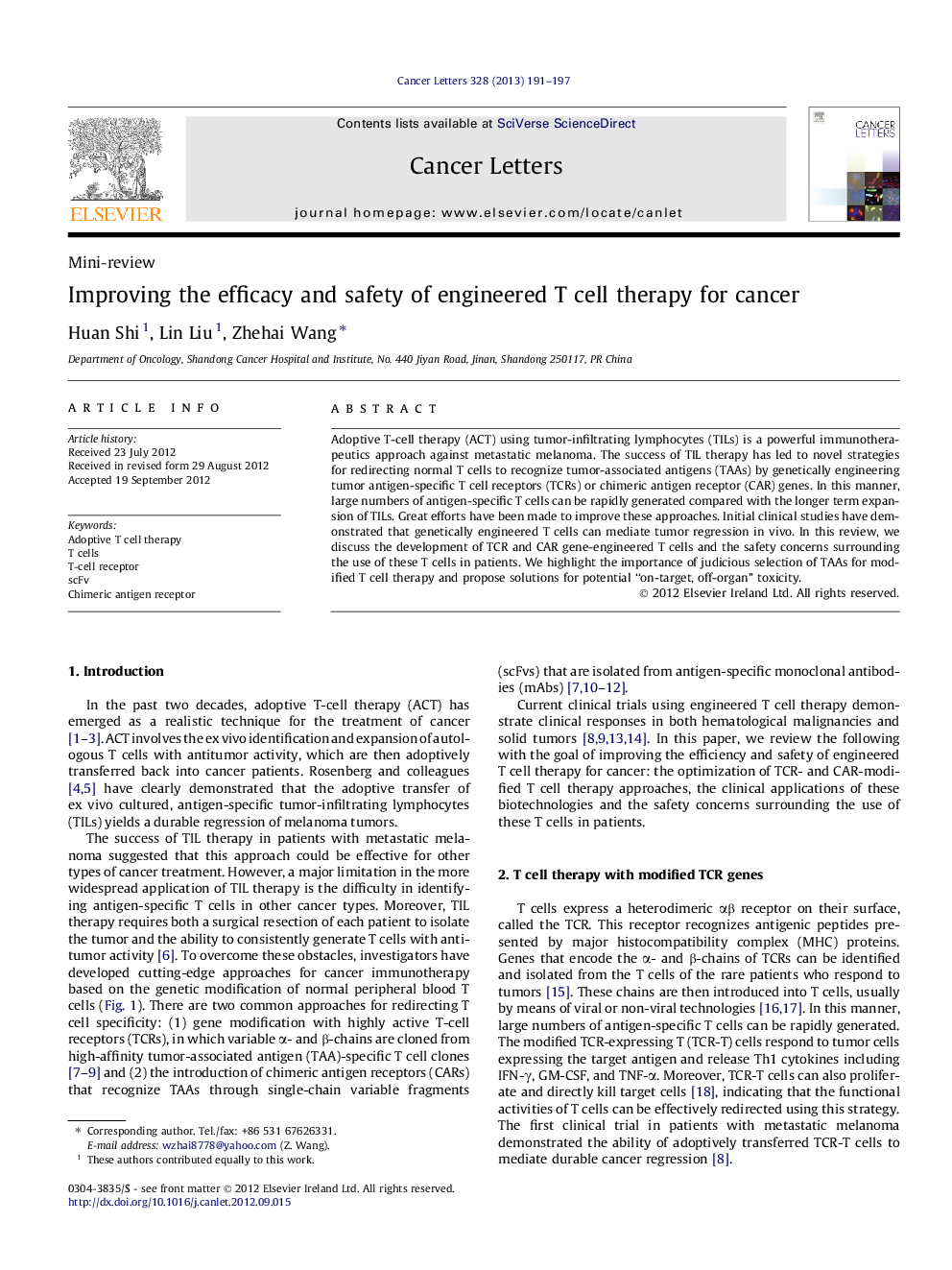| Article ID | Journal | Published Year | Pages | File Type |
|---|---|---|---|---|
| 2113131 | Cancer Letters | 2013 | 7 Pages |
Adoptive T-cell therapy (ACT) using tumor-infiltrating lymphocytes (TILs) is a powerful immunotherapeutics approach against metastatic melanoma. The success of TIL therapy has led to novel strategies for redirecting normal T cells to recognize tumor-associated antigens (TAAs) by genetically engineering tumor antigen-specific T cell receptors (TCRs) or chimeric antigen receptor (CAR) genes. In this manner, large numbers of antigen-specific T cells can be rapidly generated compared with the longer term expansion of TILs. Great efforts have been made to improve these approaches. Initial clinical studies have demonstrated that genetically engineered T cells can mediate tumor regression in vivo. In this review, we discuss the development of TCR and CAR gene-engineered T cells and the safety concerns surrounding the use of these T cells in patients. We highlight the importance of judicious selection of TAAs for modified T cell therapy and propose solutions for potential “on-target, off-organ” toxicity.
► Adoptive T-cell therapy (ACT) is emerging to be a powerful approach for cancer therapy. ► Judicious selection of target antigens is critical to the success of CARs or TCRs based ACT. ► The early results of clinical trials for engineered T-cell therapy for cancer are promising. ► Investigators are optimizing and improving the safety of these approaches.
